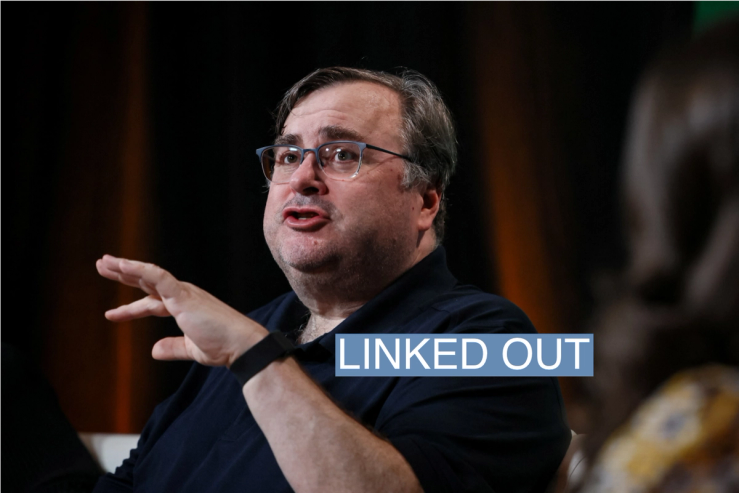The Scoop
LinkedIn co-founder Reid Hoffman was privately unhappy about being asked to leave the OpenAI board in the spring by then-CEO Sam Altman, who was adamant about the departure, people familiar with the situation said.
Hoffman announced he was voluntarily stepping down as an OpenAI director in March to avoid what he said was an appearance of a conflict since he was involved in a competing AI company. He had co-founded Inflection AI, which makes a chatbot called Pi.
But Hoffman downplayed his role at Inflection, telling people it was largely created to help its co-founder, Mustafa Suleyman, one of the people said.
If Hoffman had stayed on the board, he may have had enough stature to possibly stop the move to oust Altman as CEO on Friday. But the diminished number of directors, which went from nine to six in the months after Hoffman left, ended up putting Altman at a disadvantage. According to several people familiar with the matter, Altman had been trying to add people to OpenAI’s board in recent months.
OpenAI executives spent Saturday evening intensely negotiating a possible return of Altman to the company and an immediate resignation of the board, other people familiar with the matter said. The people said they expect OpenAI to make an announcement as early as Sunday morning local time, but they added it wasn’t yet clear whether that would include a final resolution.
Altman did not respond to a request for comment. Hoffman, through a spokeswoman, declined to comment.
In this article:
Know More
The incident highlights a common issue in the tech industry: Corporate governance is often neglected or downplayed as companies strive to grow quickly while operating in often chaotic environments.
On top of that, OpenAI’s structure is unusual. It was founded as a nonprofit in 2015, with the goal of ensuring that when artificial general intelligence is achieved, it is safe and benefits humanity.
But in 2019, Altman oversaw the creation of a for-profit entity that would be controlled by the board of the nonprofit. The idea was that OpenAI needed more money to develop the massive AI models that had become the future of the industry.
Altman took over as CEO of the for-profit entity and, in an unusual move, opted not to take equity in the company. As Semafor reported in March, some investors balked at investing in the company because of Altman’s lack of equity.
Reed’s view
People often complain about the insular, clubby and conflicted world of tech governance. But in the world of startups, having a board with the appearance of a conflict can be better than having an inexperienced one.
I think Hoffman had a point about staying on OpenAI’s board. He is the co-founder of both PayPal and LinkedIn, and had a successful career in venture capital at Greylock, which has invested in countless other AI startups. He also helped found OpenAI itself.
Despite Inflection having a chatbot, it seems like a very different kind of company than OpenAI and it’s not like Hoffman is running the day-to-day there.
If Inflection failed, it wouldn’t even have a material impact on either Hoffman’s net worth or his reputation. He had little incentive to do something untoward, like share confidential information or sabotage OpenAI.
On the other hand, the upside of having Hoffman on the board was tremendous. He has seen and lived through everything a company like OpenAI might encounter, including how to handle management disputes constructively, and believes AI can help people. That’s a different view from others on OpenAI’s board, including chief scientist Ilya Sutskever, who worry the technology can pose a threat to humanity.
Ultimately, the governance structure, and Altman’s lack of equity, left him and OpenAI in a vulnerable position. A smaller board of four directors, apart from Altman and OpenAI co-founder Greg Brockman, who quit as president on Friday, was able to oust the CEO with what appears to be little to no involvement of anyone outside that group. (It’s unclear if the vote was unanimous). That is unheard of at any tech startup, but is especially surprising at a company worth more than $80 billion.
It’s possible, maybe even likely, that Altman could return to OpenAI. And it’s unclear what OpenAI’s structure and board composition would look like going forward.
But even in a best case scenario, the company will face challenges as it works to restore its reputation and fill the void left by what is sure to be the departure of key employees.


